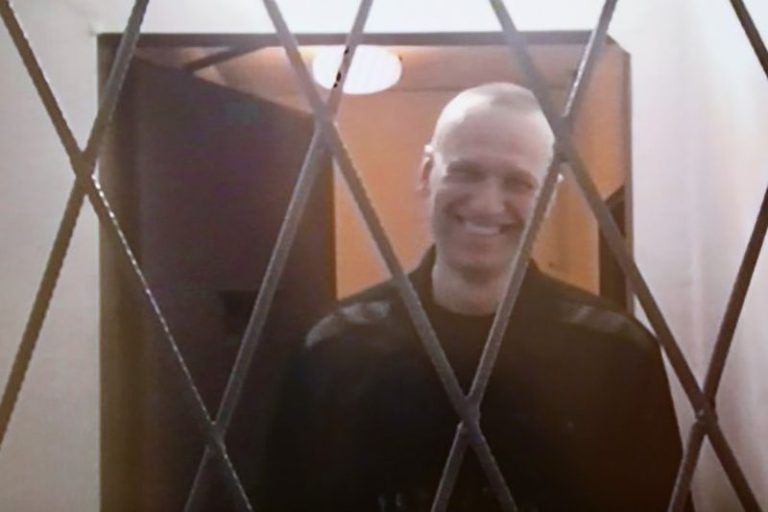Jailed Kremlin critic Alexey Navalny told a Moscow court of “freezing” conditions inside his prison, as he appeared via video link to outline his case against the authorities at the Siberian penal colony in which he is being held.
Addressing the Supreme Court in Moscow, the opposition figure described the harsh conditions he is enduring in Artic prison, where he was transferred to last month, alleging freezing temperatures and a 10-minute limit on eating food.
“It is impossible to eat in 10 minutes,” he told the supreme court judge in Moscow. “If you eat every day within 10 minutes, then this meal turns into a rather complex process.”
“The punishment cell is often a very cold place,” he continued. “Do you know why people choose a newspaper there? To cover themselves. Because with a newspaper, I can tell you judges, it is much warmer to sleep for example than without one. And so you need a newspaper so as not to freeze.”
The opposition figure is suing the prison authorities over the conditions of his detention.
Fears for Navalny’s wellbeing mounted last month after his team could not reach him for a fortnight in December. On December 25, his team said that they had finally managed to locate him at the Siberian penal colony in Kharp, to which he had been transferred.
Navalny alleged that authorities are limiting the number of religious texts he can have, saying: “[The regulations] say that I am allowed to have 10 books. I need 2 books to practice my religion. One book is not enough for me, it directly violates my religious rights.”
“I want to have in my cell 10 books. I need them for education, I need them for religious practice.”
The reason for the limit, Navalny alleges, is to prevent the study of Islam and that “some restrictions are constantly being invented,” such as a ban on Muslim rosary beads, while he says a Christian cross is allowed.
Countering the allegation that there are specific restrictions for Muslim inmates, the court’s Justice Ministry representative called Navalny’s allegations “political statements.”
The representative also told the judge that prison officers can bring Navalny up to 10 books during the day; there are no prohibitions, but he can only keep one in his cell overnight.
Navalny was sentenced to 19 years in prison in August last year after being found guilty of creating an extremist community, financing extremist activities and numerous other crimes. He was already serving sentences of 11-and-a-half years in a maximum security facility on fraud and other charges he denies.
Supporters of Navalny claim his arrest and incarceration are a politically motivated attempt to stifle his criticism of Russian President Vladimir Putin.

